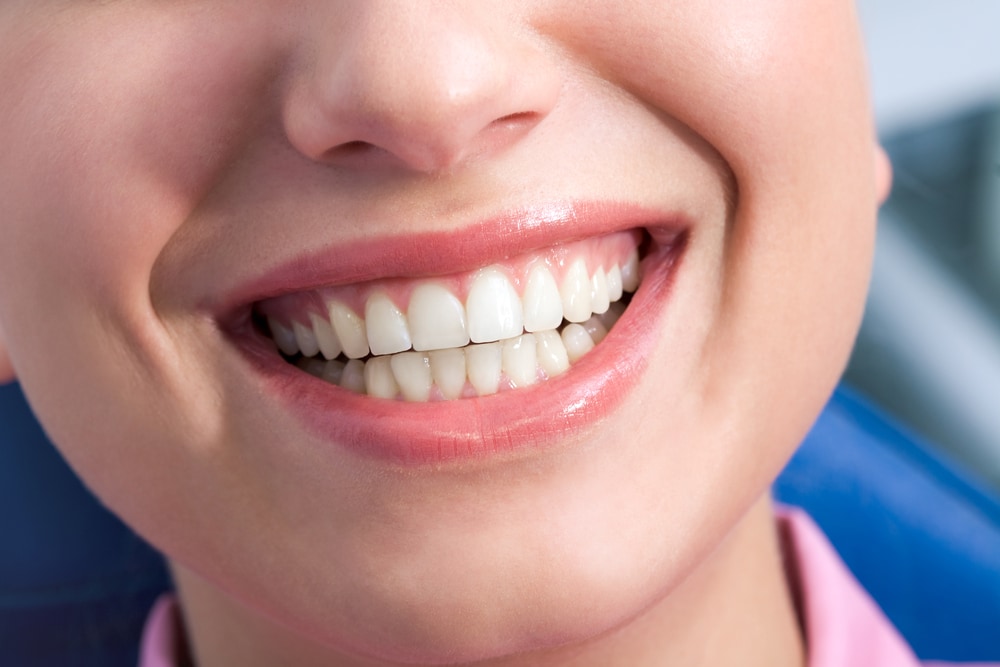A stitch in time saves nine; this is especially true when restoring damaged teeth. Dental crowns, often called caps, are a popular treatment for teeth that have experienced trauma, decay, or fracture.
This article will provide an overview of dental crowns, including the types, benefits, preparation, and aftercare. We will also explore alternatives for those not suited for a dental crown.
By understanding the essentials of dental crowns, individuals can make an informed decision for the best possible outcome.
What is a Dental Crown?
A dental crown is a restoration placed over an existing tooth to improve its shape, size, strength, or appearance. Dental crowns, or caps, are permanent restorations created to fit snugly over the natural tooth. Several types of crowns are available, including ceramic crowns, metal crowns, and composite resin crowns. Each type has its advantages and drawbacks, and the type of crown chosen will depend on the condition of the tooth and the patient’s needs.
Ceramic crowns are often used to restore teeth that are decayed, broken, or misshapen. They are made of porcelain which has the appearance of natural teeth, making them a good choice for front teeth. Metal crowns are usually made of gold, palladium, or a combination of metals. Metal crowns are strong and durable and are an ideal choice for molars. Composite resin crowns are made of a composite material that is strong and durable and can be matched to the shade of the patient’s natural teeth.
No matter which type of crown is chosen, the crown must fit securely and comfortably on the tooth. The dentist will inspect the tooth to ensure the crown fits properly. Once placed, the crown must be maintained with regular brushing, flossing, and regular dental check-ups. Dental crowns can last for many years with proper care and maintenance.
Types of Dental Crowns
Different types of crowns exist, which can be used for various restorative purposes. Temporary crowns are specially designed to protect a tooth while a permanent crown is being made. Dental implants, bridges, and crowns are often employed for permanent restorations. The dental crown procedure typically begins with the removal of any decay in the tooth before the placement of the crown. Stainless steel crowns are often used to restore a primary tooth and are not visible when smiling. Additionally, root canal therapy may be necessary before a permanent crown is placed.
Zirconia or all-ceramic crowns are popular for their aesthetic appeal and strength. These crowns are suitable for front and back teeth and look natural. Gold crowns are also available and often used for molars due to their durability. Porcelain crowns are relatively strong and can be matched to the colour of natural teeth.
The patient’s dental health and preferences should be considered when selecting a crown. The dentist will advise on the type of crown that is best for the patient’s needs. The dental restoration process can be lengthy, but a successful outcome can be achieved with proper preparation and the right type of crown.
Benefits of Dental Crowns
Dental crowns can provide a range of patient benefits, from restoring a damaged tooth to improving oral health. For those who have experienced deep decay, root canal treatment, or a broken tooth, a custom crown can be a great way to restore the natural tooth structure. Dental crowns can also provide a long-term solution to dental issues requiring more than one dental visit, such as cracked or severely worn-down teeth.
By creating a custom crown to cover the tooth, dental professionals can protect against further damage and ensure proper care. Digital impressions can be taken to create a custom crown that fits the exact size and shape of the tooth. This allows for a more accurate restoration, providing a seamless look that blends in with the natural teeth.
The following are just some of the many benefits that dental crowns can provide:
- Durability: Dental crowns are made from a strong and durable material, such as porcelain or metal, that can withstand daily wear and tear. A dental crown can last up to 15 years with proper care and regular dental visits.
- Improved Oral Health: Dental crowns can help to protect against further damage to the tooth and can also help to improve overall oral hygiene. Covering the tooth with a crown protects against extensive decay or bacteria build-up.
- Aesthetics: A custom crown can be matched to the shade of the natural teeth, creating a seamless look that blends in with the rest of the smile. Proper dental cement makes a dental crown look and feel just like a natural tooth.
Dental crowns can provide a variety of benefits for patients, from restoring a damaged tooth to improving oral health. With the proper care and regular dental visits, a dental crown can create a long-lasting and aesthetically pleasing restoration.
Preparing for a Dental Crown
Preparing for a dental crown procedure requires a detailed understanding of the process to achieve a successful restoration. Patients with weak teeth, damaged teeth, discoloured teeth, or a loose crown may be candidates for a dental crown. Before the procedure, the entire tooth is prepared, and a digital scanner is used to create a tooth-shaped cap known as a crown. Afterwards, the crown is placed over the tooth to protect it and restore its original appearance and function.
In some cases, same-day crowns are available using a high-tech resin crown. This process requires minimal preparation and a strong bond between the crown and the tooth. However, patients with severely damaged teeth may need a root canal before a crown is placed.
Patients must understand the importance of preparing for a dental crown procedure to ensure the best outcome. Taking the time to learn about the process and what to expect will help ensure that the crown is placed properly and that the tooth is protected and restored to its original state. With proper preparation and the right dental professional, a successful restoration is achievable.
Alternatives to Crowns
Alternative treatments to dental crowns may be available depending on the tooth’s extent of damage. In some cases, a person who has an allergic reaction to the materials used to make metallic crowns may be able to find an alternative tooth-shaped cap that is made of a different material. Additionally, people who have gum disease may be able to find a dental impression that helps to prevent sticky foods from getting stuck in their prepared teeth.
In other cases, a person may be able to find an alternative to crowns to reduce the risk of infection. This may include options such as a dental bridge or veneer. Dental bridges are constructed with two crowns on either side of the gap in the teeth and a false tooth in the middle. Veneers are thin shells of tooth-coloured material bonded to the front of the teeth to cover discoloured teeth.
Finally, a person may be able to find other alternatives to crowns, such as dental implants or composite fillings. Dental implants are titanium posts surgically implanted into the jawbone to replace missing teeth. Composite fillings are also an option for people looking for an alternative to crowns. These fillings are made of a mixture of composite resin and plastic material.
Altogether, there are a variety of alternatives to crowns that may be suitable for a person depending on the extent of damage to the tooth. Discussing these options with a dentist and determining which one is best for the individual situation is important.
Dental Crown Aftercare
Proper aftercare of a dental crown is essential for successful restoration. To ensure optimal crown longevity, it is important to adhere to the instructions provided by a professional dentist.
Following are four essential aftercare tips for dental crowns:
- Avoid Chewing Hard Foods: When wearing a dental crown, it is important to avoid chewing hard foods such as hard candy, ice cubes, or other hard substances. This can cause damage to both the crown and the natural tooth structure beneath it.
- Practice Good Oral Hygiene: Good oral hygiene is essential for healthy teeth and gums. Follow your dental professional’s instructions to ensure that your dental crown remains strong and healthy for years to come.
- Be Mindful of Tooth Shape: When wearing a dental crown, the tooth’s shape may change due to chewing forces. It is important to be mindful of the tooth’s shape and contact your dental professional if the shape begins to change.
- Choose High-Quality Materials: When selecting materials for a dental crown, it is important to choose high-quality materials such as metal alloys or gold alloys, which are more resistant to wear and tear than natural enamel. Professional dentists can help to ensure that the crown is restored with materials that are best suited for the patient’s needs.
Key Takeaways
Dental crowns are a great way to restore a tooth’s shape, size, and strength. They can also improve the appearance of a tooth, as well as protect it from further damage. Successful restoration is within reach with the right preparation, the right kind of crown, and proper aftercare.
But how long will a dental crown last? With proper care and regular dental visits, a crown can last for many years. Asking the right questions and working with a qualified dental team is essential for a successful dental crown restoration.
At Butler Dental in Butler, WA, we provide comprehensive dental care with the goal of helping you achieve long-lasting dental crown restoration. Our team of experienced Dentists in Butler is dedicated to helping you achieve the best possible results. From the initial consultation to the final checkup, we take the time to ensure that your crown is placed correctly and will last for years to come. Contact us today to learn more about how we can help you achieve your smile goals.

